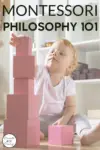I earn commissions from my affiliated links. Please see my disclosure policy for more details.
In a world driven by academic achievements and standardized tests, the Montessori philosophy emerges as a beacon of hope for those seeking a more holistic approach to childhood development.
Developed by Dr. Maria Montessori over a century ago, this educational method places a strong emphasis on empowering children to become self-directed learners and responsible members of society.
By fostering individuality, creativity, and critical thinking skills, the Montessori approach aims to create an environment where children can flourish and reach their full potential.
Through hands-on learning experiences and a carefully curated curriculum, this philosophy nurtures the innate curiosity and natural love for learning that every child possesses.
In this post, we will delve deeper into the Montessori philosophy and explore its profound impact on childhood development, shaping young minds into confident, independent, and compassionate individuals ready to take on the world.

What is the Montessori Philosophy?
The Montessori philosophy is an educational approach that values the individuality and uniqueness of each child. Dr. Maria Montessori believed that children are innately curious and possess a natural love for learning. This philosophy encourages children to explore their interests and passions at their own pace while providing them with a structured and supportive environment.
Carefully designed, Montessori classrooms promote independence, freedom of choice, and a sense of responsibility. Children are encouraged to make decisions, solve problems, and engage in hands-on learning experiences that cater to their individual needs and interests.
The Montessori philosophy recognizes that children learn best when they are actively engaged and encouraged to follow their own natural curiosity, rather than being passive recipients of information.
The Montessori method is based on several key principles. Firstly, it emphasizes the importance of respect for the child. Montessori educators view children as capable individuals and treat children with dignity and respect.

Secondly, the Montessori philosophy recognizes that children learn best through concrete experiences. Carefully selected & designed materials stimulate the senses and facilitate learning. These materials are self-correcting, allowing children to learn from their own mistakes and develop problem-solving skills.
Lastly, the Montessori method promotes a sense of order and structure. Organized and free from clutter, Montessori environments create a peaceful and calm environment that promotes concentration and focus.
The Impact of the Montessori Philosophy on Childhood Development
The Montessori philosophy has a profound impact on childhood development, shaping young minds into confident, independent, and compassionate individuals. One of the key benefits of the Montessori approach is the development of self-directed learning skills. Montessori classrooms provide children with the freedom to choose their own activities and work at their own pace.
This fosters a sense of responsibility and ownership over their learning, empowering children to become active participants in their education. By allowing children to follow their own interests and passions, the Montessori philosophy encourages a lifelong love for learning.
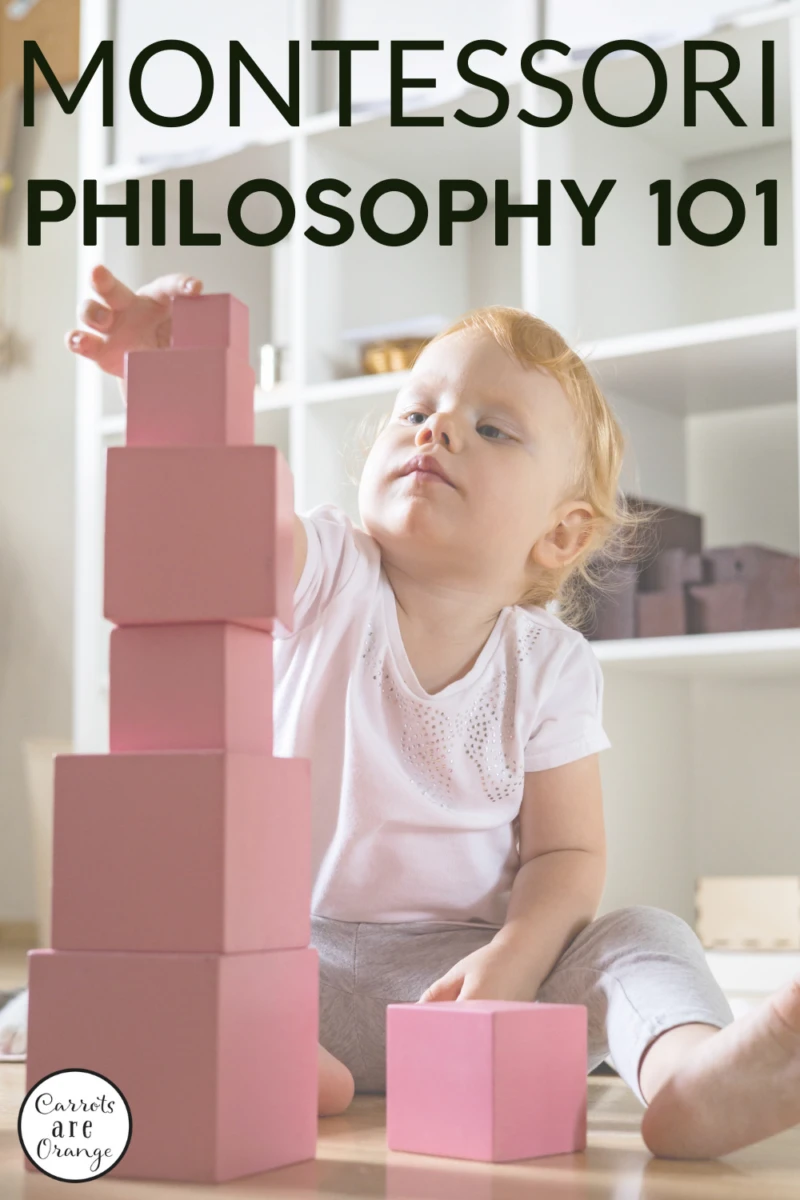
Another important aspect of the Montessori philosophy is the development of critical thinking skills. Again, Carefully designed Montessori materials and work lessons challenge children to think creatively and develop their own solutions.
This not only enhances their cognitive abilities but also nurtures their ability to think critically and make informed decisions. Children in Montessori classrooms learn to ask questions, explore different perspectives, and develop a deep understanding of the subjects they study.
The Montessori philosophy also cultivates a strong sense of community and social responsibility. Montessori classrooms are multi-age, allowing children to interact and learn from their peers. This promotes collaboration, empathy, and respect for others.
Montessori educators emphasize the importance of kindness, compassion, and peaceful conflict resolution. By creating an environment that values cooperation and mutual respect, the Montessori philosophy helps children develop strong interpersonal skills and become responsible members of society.
Montessori Education vs Traditional Education
Montessori education differs significantly from traditional education in several key aspects. While traditional education focuses on a teacher-centered approach, where the teacher is the primary source of knowledge and instruction, Montessori education places the child at the center of the learning process.
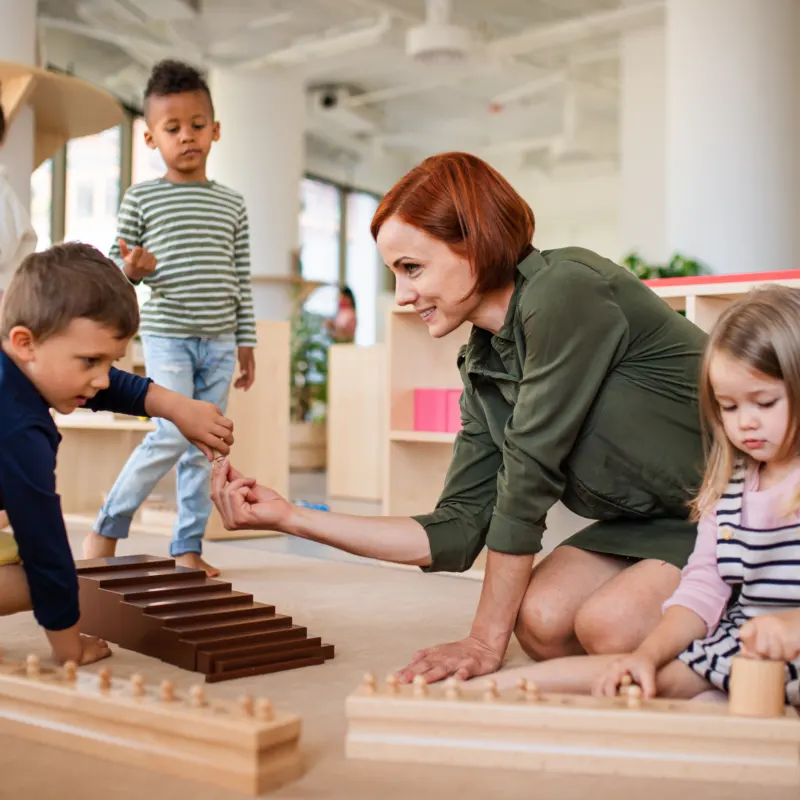
Montessori’s prepared environment allows children to explore their interests and passions at their own pace. In traditional education, you find a standardized and rigid curriculum that often leaves little room for individuality and creativity.
Montessori education, on the other hand, offers a flexible and personalized learning experience that caters to each child’s unique needs and interests.
Another important difference between Montessori education and traditional education is the role of assessment. In traditional education, assessment is often based on standardized tests and grades. Montessori education, however, takes a more holistic approach to assessment.
Montessori educators observe and assess children’s progress based on their individual growth and development. This allows for a more comprehensive understanding of each child’s strengths, challenges, and areas of growth.
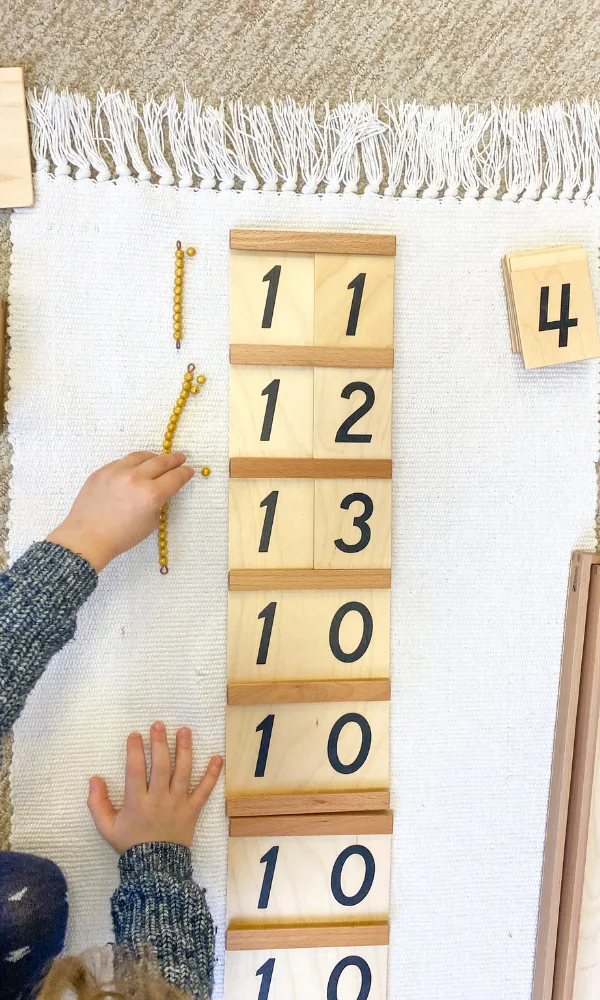
Designed to promote active learning and hands-on experiences, Montessori classrooms give children access to a wide range of carefully selected materials and activities that stimulate their senses and facilitate learning.
Traditional classrooms, on the other hand, often rely on textbooks and lectures as the primary means of instruction. Montessori education encourages children to engage in hands-on, experiential learning, fostering a deep understanding of the subjects they study.
Montessori Materials and their Role in Learning
One of the key components of the Montessori method is the use of specially designed materials that facilitate learning and promote independence. Carefully selected Montessori materials appeal to children’s senses and promote exploration and discovery.
These materials are self-correcting, allowing children to learn from their own mistakes and develop problem-solving skills. Materials are aesthetically pleasing and inviting, encouraging children to engage in learning activities.
There are five main areas in a Montessori classroom: practical life, sensorial, language, mathematics, and geography.
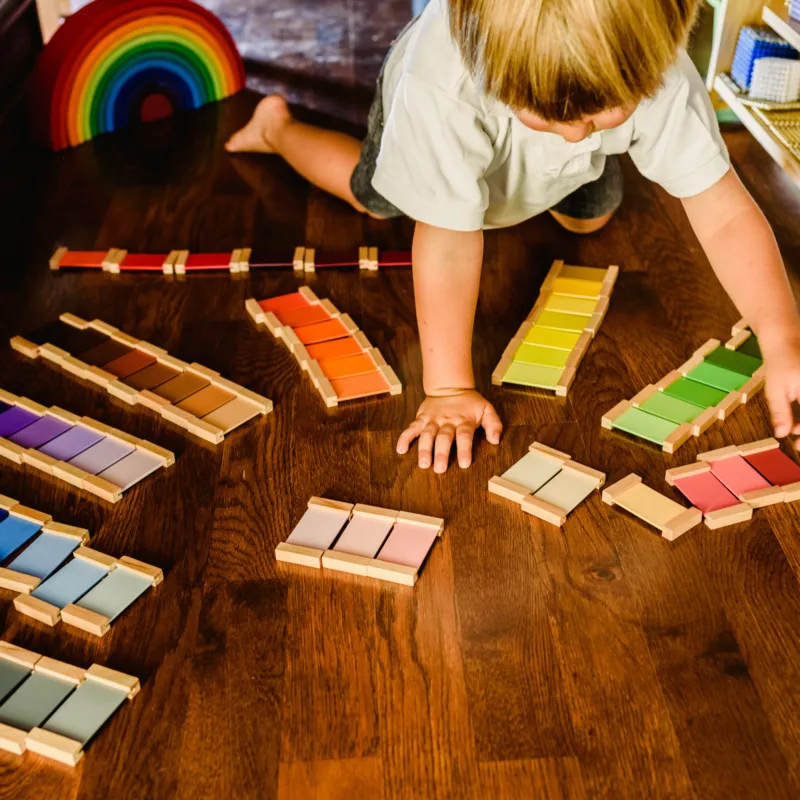
Practical life materials, such as pouring water or buttoning clothes, help children develop fine motor skills, concentration, and independence. Sensorial materials, such as the pink tower or the color tablets, help children refine their senses and develop skills of observation and discrimination.
Language materials, such as sandpaper letters or the movable alphabet, introduce children to phonetic sounds and help them develop reading and writing skills. Mathematics materials, such as the golden beads or the spindle box, help children understand mathematical concepts through hands-on exploration.
Cultural materials, such as puzzle maps or the continent globes, introduce children to concepts of geography, history, and science.
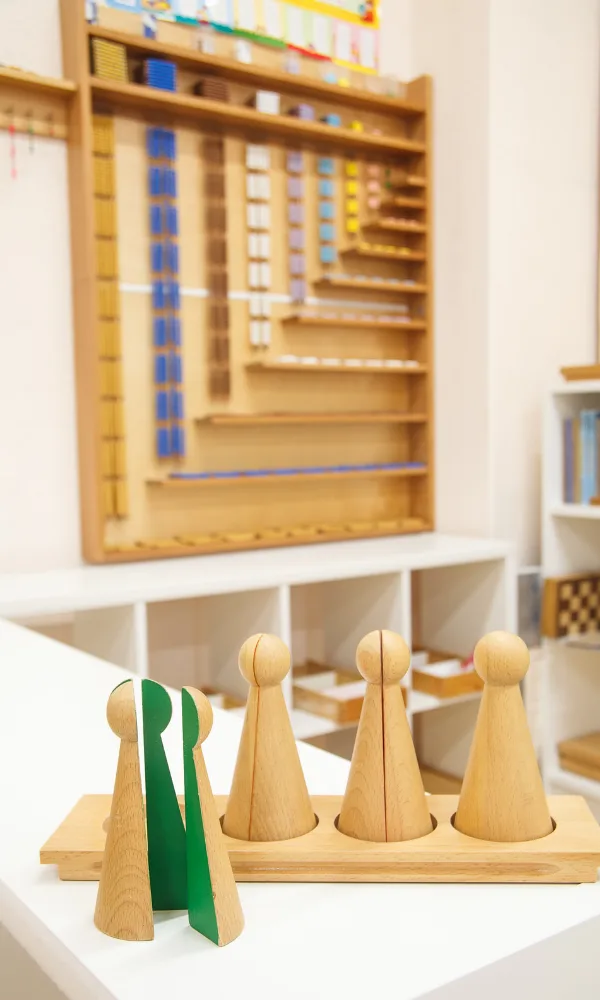
Montessori materials play a crucial role in the learning process. They are carefully designed to provide children with a concrete understanding of abstract concepts, allowing them to develop a deep understanding of the subjects they study.
These materials promote active engagement, critical thinking, and problem-solving skills. By allowing children to manipulate and explore the materials, Montessori education encourages a deep and meaningful learning experience.
Montessori in Practice: the Classroom Environment and Teaching Methods
Montessori classrooms are carefully designed to promote independence, freedom of choice, and a sense of responsibility. The physical environment of a Montessori classroom is organized and inviting, with low shelves displaying a wide variety of materials and activities.
The classroom is divided into different areas, each dedicated to a specific subject or activity. Children are free to move around the classroom, choose their own activities, and work at their own pace.
Montessori educators play a crucial role in creating a supportive and nurturing learning environment. They act as guides, observing and assessing each child’s progress, and providing individualized instruction when needed.
Montessori educators are trained to respect and understand each child’s unique learning style and developmental stage. They provide guidance and support while allowing children to develop their independence and problem-solving skills.
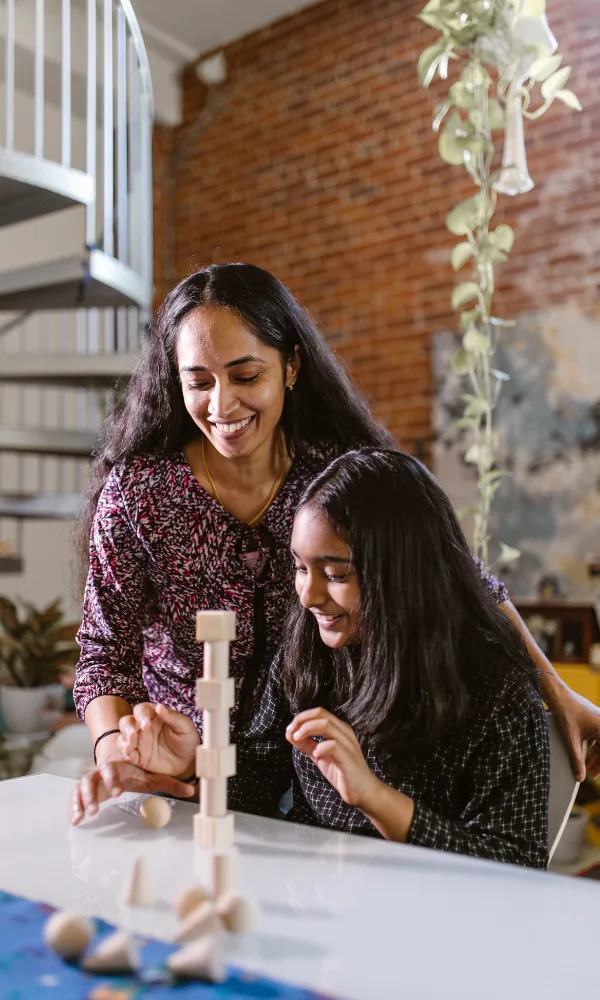
The teaching methods used in Montessori classrooms are based on the principles of observation, individualization, and freedom of choice. Montessori educators carefully observe each child’s interests, strengths, and challenges and provide appropriate materials and activities to support their individual growth.
They encourage children to take ownership of their learning, make decisions, and solve problems independently. Montessori educators also foster a sense of community and cooperation, promoting collaboration and respect for others.
Montessori at Home: Incorporating the Philosophy into Daily Life
The Montessori philosophy is not limited to the classroom setting. It can be incorporated into daily life at home, creating a supportive and enriching environment for children. There are several ways parents can incorporate Montessori principles into their home routines and activities.

Firstly, creating a prepared environment is essential. Montessori principles emphasize the importance of order and structure. Parents can organize their homes in a way that promotes independence and encourages children to be responsible for their belongings.
Low shelves can be used to display toys and materials, allowing children to choose their activities independently. Child-sized furniture and utensils can be provided to foster independence and develop motor skills.
Secondly, parents can encourage hands-on learning experiences. Montessori education values the importance of concrete experiences in learning. Parents can provide their children with age-appropriate materials and activities that stimulate their senses and promote exploration and discovery.
Nature walks, cooking together, and engaging in arts and crafts are just a few examples of hands-on activities that promote learning and creativity.
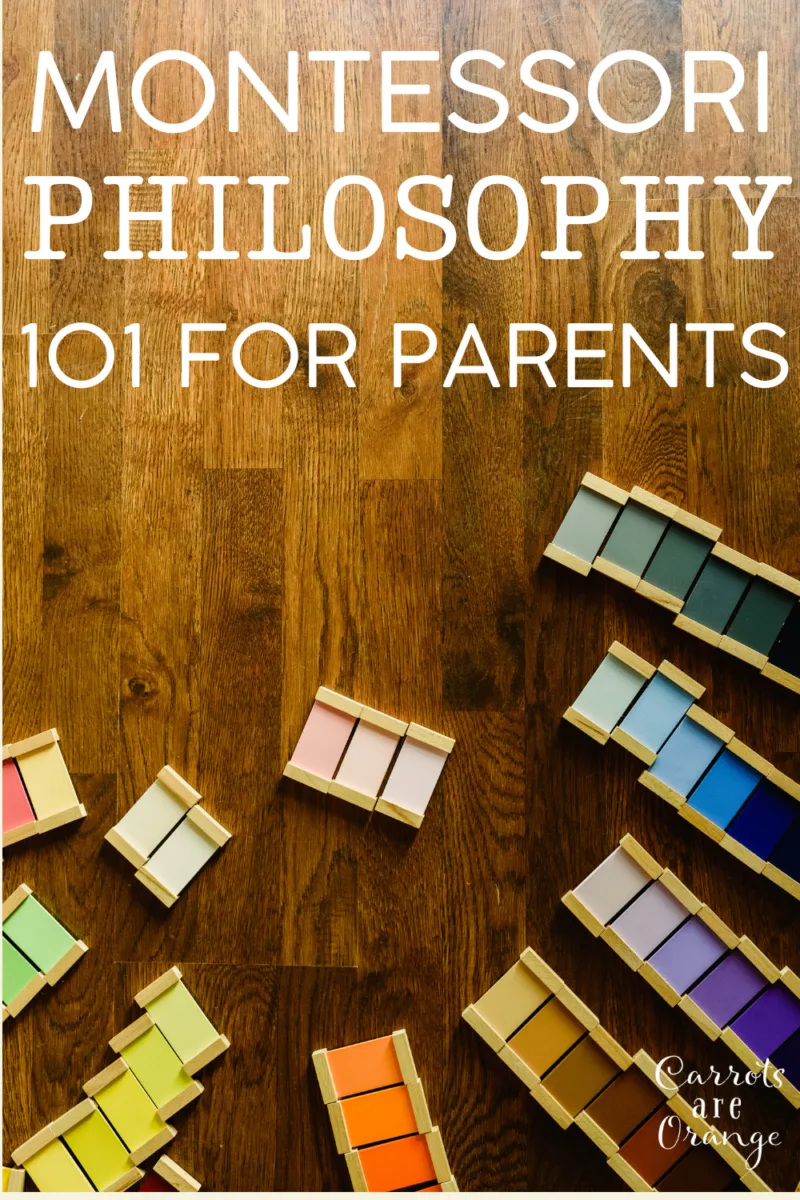
Thirdly, parents can foster independence and responsibility. Montessori principles emphasize the importance of allowing children to make decisions and take ownership of their learning. Parents can involve their children in daily chores and routines, such as setting the table or folding clothes. This not only promotes independence but also develops practical life skills and a sense of responsibility.
Lastly, parents can create a peaceful and calm environment at home. Montessori education recognizes the importance of a calm and peaceful atmosphere in promoting concentration and focus. Parents can create designated quiet spaces for reading or quiet activities, limit screen time, and provide opportunities for relaxation and mindfulness.
Success Stories and Research on the Effectiveness of Montessori Education
There have been numerous success stories and research studies that highlight the effectiveness of Montessori education in promoting childhood development.
Many notable individuals, such as Larry Page and Sergey Brin (founders of Google), Jeff Bezos (founder of Amazon), and Anne Frank, credit their Montessori education for their success in life. These individuals have attributed their Montessori education to fostering creativity, critical thinking skills, and a lifelong love for learning.
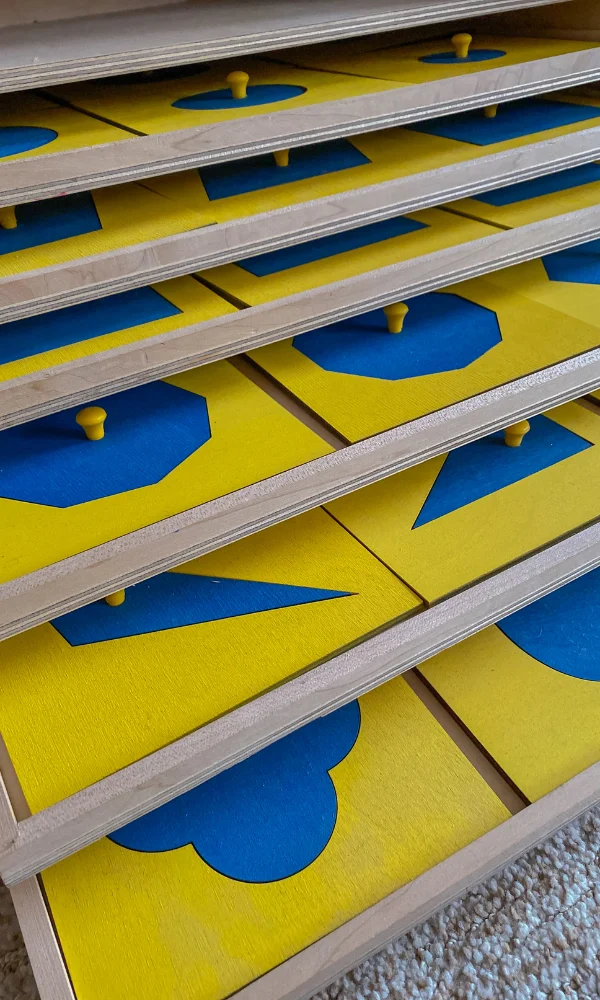
Research studies have also shown positive outcomes for children who have attended Montessori schools. A study conducted by Angeline Lillard, a professor of psychology at the University of Virginia, found that children who attended Montessori schools demonstrated higher levels of academic achievement, social skills, and executive functioning compared to children in traditional schools. Other studies have found that Montessori education promotes creativity, problem-solving skills, and self-regulation.
Choosing a Montessori School for Your Child
Choosing a Montessori school for your child is an important decision that requires careful consideration. When selecting a Montessori school, there are several factors to consider.
Firstly, it is important to ensure that the school is accredited by a recognized Montessori organization, such as the Association Montessori Internationale (AMI) or the American Montessori Society (AMS). Accredited schools adhere to the principles and standards set by these organizations, ensuring a high-quality Montessori education.
Secondly, consider the qualifications and experience of the teachers. Montessori educators undergo specialized training to understand the Montessori philosophy and implement it effectively in the classroom. Look for teachers who are certified in Montessori education and have experience working with children in a Montessori setting.
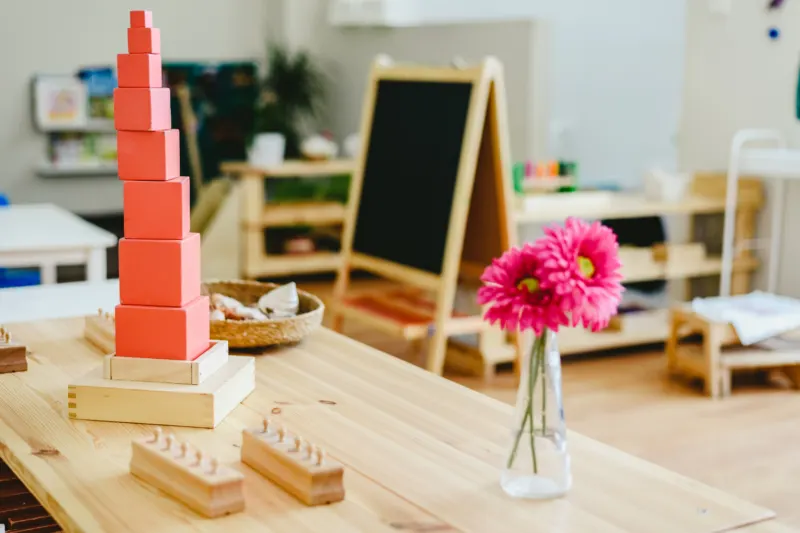
Thirdly, visit the school and observe the classroom environment. A true Montessori classroom should be organized, calm, and inviting. Look for a wide variety of materials and activities that cater to different interests and developmental stages. Observe how the children are engaged in their activities and how the teacher interacts with them.
Lastly, consider the school’s philosophy and values. Each Montessori school may have its own unique approach and emphasis. It is important to find a school that aligns with your values and goals for your child’s education.
The Lasting Impact of the Montessori Philosophy on Lifelong Learning
The Montessori philosophy has a profound and lasting impact on childhood development, shaping young minds into confident, independent, and compassionate individuals. By empowering children to become self-directed learners and responsible members of society, the Montessori approach fosters individuality, creativity, and critical thinking skills.
Through hands-on learning experiences and a carefully curated curriculum, the Montessori philosophy nurtures the innate curiosity and natural love for learning that every child possesses. Montessori education differs significantly from traditional education in its emphasis on independence, freedom of choice, and a holistic approach to assessment.
Montessori materials play a crucial role in the learning process, providing children with concrete experiences and promoting active engagement and problem-solving skills. The Montessori philosophy extends beyond the classroom, as parents can incorporate Montessori principles into their home routines and activities.
Success stories and research studies have highlighted the effectiveness of Montessori education in promoting academic achievement, social skills, and executive functioning. When choosing a Montessori school, it is important to consider accreditation, teacher qualifications, classroom environment, and the school’s philosophy and values.
The Montessori philosophy leaves a lasting impact on lifelong learning, empowering individuals to become lifelong learners, critical thinkers, and responsible members of society.

